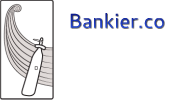OWNER-/ ENTERPRISER DYNAMICS - or lack of successful value creation?
An individual owner's dilemmas may stem from that of being alone.
S/he can be in need of a confidant, i.e. a fit & competent partner for dialogue, without a hidden agenda like that of being driven by transaction fees. Multi-role financial players, auditors, law-firms and others may focus on transactions and practice cross-selling strategies - stimulated by internal bonus schemes.
A Small and Mid-sized Enterprise (SME) may be underserved by these above-mentioned central players, because it is neither a "name" in financial markets - nor a source of repeated transaction fees. This is a situation shared by most SMEs, hereunder family-owned firms.
Therefore an individual owner tends to be on her-/his own in sensitive financial situations. Access to equity capital and/or mezzanine financing are both decisive. Such access can be prepared also for a SME - to benefit its owner(s) and other stakeholders. This pro-active step can prevent, that a SME comes under pressure.
An individual owner's foresight and pro-active dispositions are vital to ownership dynamics.
There are different phases of enterprise and ownership: Transformation, transition and transfer.
Transformation, hereunder start-up and innovation, can be based on sustainable and competitive use of resources and technologies, which may result in viability and continuity.
Transition can be timely changes of internal ownership and leadership between generations - often combined with needed industrial cooperation cross-border to achieve competitive advantages.
Transfer can take place by opening up to wanted alliances, who choose to co-opt / cooperate to achieve innovation - or by EXIT of ownership; e.g. selling voluntarily - or to experience hostile takeover / winding up / bankruptcy.
An individual owner's dilemmas may stem from that of being alone.
S/he can be in need of a confidant, i.e. a fit & competent partner for dialogue, without a hidden agenda like that of being driven by transaction fees. Multi-role financial players, auditors, law-firms and others may focus on transactions and practice cross-selling strategies - stimulated by internal bonus schemes.
A Small and Mid-sized Enterprise (SME) may be underserved by these above-mentioned central players, because it is neither a "name" in financial markets - nor a source of repeated transaction fees. This is a situation shared by most SMEs, hereunder family-owned firms.
Therefore an individual owner tends to be on her-/his own in sensitive financial situations. Access to equity capital and/or mezzanine financing are both decisive. Such access can be prepared also for a SME - to benefit its owner(s) and other stakeholders. This pro-active step can prevent, that a SME comes under pressure.
An individual owner's foresight and pro-active dispositions are vital to ownership dynamics.
There are different phases of enterprise and ownership: Transformation, transition and transfer.
Transformation, hereunder start-up and innovation, can be based on sustainable and competitive use of resources and technologies, which may result in viability and continuity.
Transition can be timely changes of internal ownership and leadership between generations - often combined with needed industrial cooperation cross-border to achieve competitive advantages.
Transfer can take place by opening up to wanted alliances, who choose to co-opt / cooperate to achieve innovation - or by EXIT of ownership; e.g. selling voluntarily - or to experience hostile takeover / winding up / bankruptcy.
